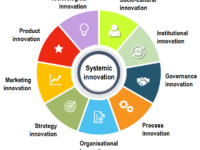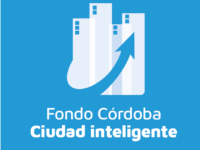Becoming a circular economy entails a deep transformation of industry, consumer behavior and policy. Traditional innovation funding focuses on technology, punctual projects and (single) companies, which alone fail to bring the required systemic change. Hence, the Flemish government launches the subsidy programme Living Labs Circular Economy for projects tackling complex challenges, with a high ambition level, in co-creation with very diverse stakeholders and employing system innovation methods.
Innovation Tag: Financing Mechanisms and Innovation Funds
In 2021, SIRA clawed back $91 million in excess insurer profit earned on the sale of compulsory motor accidents insurance and returned it to NSW drivers. This move was made possible after the 2017 reforms introduced a transitional excess profits and losses (TEPL) mechanism that was designed to eliminate insurer ‘super profits’ of the past. To our knowledge, the activation of this mechanism to claw back excess insurer profit and return it to the people was a world first.
Case Study
Exploration Projects – Promotion and development of disruptive and unconventional research in…

The National Agency of Research and Development has piloted a new program, called ‘Exploration Projects’, that allows funding of disruptive, unconventional, and high novelty science and research in all areas of knowledge. The program goals are to promote this type of science, propose the exploration of new and unconventional perspectives, methodologies, theories, and technologies, with the potential for significant reward to its discipline, field of knowledge, as well as society.
Case Study
BIFIDEX – Official Business and Financial Analytics for the single market in the Western…

Countries in the Western Balkans created digital infrastructure to support transparent business operation and prevent fraud in their Common Regional Market. The official registries from 5 countries in the Western Balkans created a digital platform, connecting all official legal and financial data about companies, connected entities, blocked bank accounts and sanctioned persons, bridging different legislations, languages and currencies. The platform won the 2022 OECD/SIGMA/ReSPA award.
The Future Tech Challenge (FTC) is a pilot initiative led by DPER to connect and collaborate across the wider ecosystem, and engage in transformative innovation by experimenting with, and applying new technology to address pressing public sector problems and opportunities that deliver improved services to the public. Drive innovation using emerging technology, enhance collaboration, meet National strategic priorities, generate knowledge & learnings and develop prototyped solutions.
The innovation is developed due to the need to integrate the process of financial reporting of projects with the acceleration program of Start-Up Chile, benefiting the entrepreneurs of the program and the Chilean Government itself. The process seeks to educate on the relevance of project financial planning, while preparing them to perform efficient and high standard financial reporting to the Chilean government.
The Mayor of London is piloting how human centered design and systems thinking can fuse with a missions-orientated approach to make the city a better place to live, work and visit. Designing London's Recovery seeds a portfolio of radical innovations cutting across policy areas, embedding future resilience and redefining good growth by deconstructing silo working, fostering a design-led collaborative and inclusive policy ecosystem, and sparking creativity to create further systemic impacts.
In order to implement innovative solutions in the city of Córdoba under an open innovation approach, the local government launched the Córdoba Smart City Fund, the first Govtech fund in Latin America, to invest and partner with impact startups that contribute to the development of a smarter, more inclusive and sustainable city.
The GCF is the MMC’s response to the unmet needs of cities as they work to support migrants, refugees, & IDPs during COVID-19. By offering direct financial and technical support to cities in low & middle income countries, the GCF proves fiscal feasibility in places that are often disregarded by donors with low-risk tolerance. The vision is to create a model that can be scaled & replicated elsewhere to ensure that global responses to pressing challenges reflect & address realities on the…
European Border regions face obstacles in diverse domains, hampering cross-border interactions and development. b-solutions provides an innovative way to support border regions in identifying the root causes of obstacles and devising solutions pathways in two ways:
i) how public support is provided: a legal expert working directly with the beneficiary on a obstacle (i.e. no red tape+cost effectiveness)
ii) on each different solutions (legal revision proposals; agreements; revised procedures)




